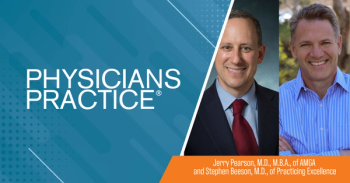
How EHRs Can Help Prevent Opioid Addiction
If used properly, EHRs can help prevent the opioid epidemic from continuing to grow by managing prescription documents.
Electronic Health Records (EHR), are a useful tool to help doctors and nurses provide comprehensive care to their patients. These records enable patient records to be updated and tracked from a variety of locations. They can also send electronic prescriptions from hospitals and other medical offices to the patient's pharmacy.
EHR may also be a weapon against over-prescribing certain medications. With the growing opioid epidemic spreading across the country, medical professionals and law enforcement are looking for innovative ways to reduce the number of opioid addicts. How can EHRs help prevent the growing threat of addiction to controlled substances like opioids?
Addiction Statistics
Americans use more prescription opioids than any other country in the world.
This number has only grown in the intervening years, though the exact numbers are difficult to track because many people suffering from addiction don't seek help or treatment for their substance abuse.
EHR Implantation
Adopting new technology takes time, but the rates of EHR adoption are on the rise. As of January 2016,
EHR Prescriptions
Electronic prescriptions for controlled substances require extra checks and balances before a prescription can be processed. The prescriber has to be qualified to prescribe certain controlled substances, and those qualifications can be revoked.
Utilizing electronic prescriptions
Stricter regulations and detailed electronic records are the first steps toward countering the growing number of opioid addictions.
EHRs and PDMPs
While EHRs are a phenomenal tool, they are not enough to counter the number of opioid addictions. This is why many states have implemented prescription drug monitoring processes, or PDMPs. This close monitoring has
Changes in policy have affected the number of opioid prescriptions. Previously, people seeking an opioid prescription could visit a hospital to obtain a prescription for their painkiller of choice.
Patients being discharged from the emergency department are given no more than a few days' supply of a short-acting opioid, and any prescription for larger amounts of opioid painkillers require the prescribing physician check with the states PDMP.
By enabling both medical professionals and law enforcement officers to keep track of prescriptions of controlled substances, PDMPs have allowed public institutions to take the first steps in reducing the number of opioid addictions in the United States.
EHRs in the Future
Implementing the use of electronic health records universally throughout the medical community is only the beginning. EHRs allow the medical community to keep track of records and prescriptions as well as flag problems areas for opioid abuse. Once they have been universally implemented, these EHRs can also be used to predict trends including substance abuse statistics.
By adopting predictive analytics, or the application of machine learning algorithms to the data collected by these EHRs, the medical community could predict variables such as the kind of people who, based on their genetics, demographics or other information, might be susceptible to substance abuse.
Predictive analytics won't provide specific information that allows an individual to be identified, but they could provide risk factors that medical professionals can be on the lookout for.
EHRs are one of the most vital tools for providing accurate and efficient care for patients across the country. If used correctly, they could also be the most important weapons in our fight against opioid substance abuse.
Kayla Matthews is a health IT writer and blogger, who contributes to BioMed Central, VentureBeat, The Huffington Post and Kareo’s Go Practice Blog. To read more posts from Kayla, follow her on her blog,
Newsletter
Optimize your practice with the Physicians Practice newsletter, offering management pearls, leadership tips, and business strategies tailored for practice administrators and physicians of any specialty.








